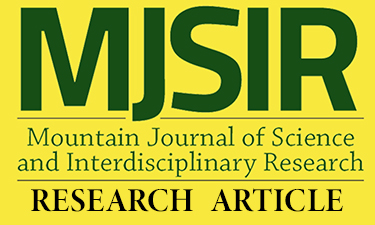“Wat Ta Iman Supsuplay (We Are But Supplied Farmers)”: Understanding the Practice of Pasuplay System on Vegetable Production in Madaymen, Kibungan, Benguet
Main Article Content
Abstract
Supply system in the agriculture sector is a form of informal credit system where supplier or landowners fund their supplied farmers in terms of farm inputs and land and the supplied farmers work for the suppliers. Using case-based study guided by the theories of empowerment (Foucault, 1980; Melkote & Steeves, 2001) and the understanding of feudalistic relationships present in agricultural production systems, the study aimed to understand and document the practice of ‘Pasuplay System’ on vegetable production in Madaymen, Kibungan, Benguet. The Gumpic family is the pioneer of the Pasuplay System in the area which started in 1985. They also have one of the highest supplied farmers with 20 farmers and are well-known in the Pasuplay business. The Pasuplay System as practiced by the Gumpic family and its supplied farmers characterized the system as job opportunity, a form of an informal credit system and as a source of living. It includes five stages, namely ngalatan (agreement) stage, panag-uubla (cropping) stage, panag-aapit (havesting) stage, panaglalako (marketing) stage, and panagtototal (computation) stage. Although the system is important to both the supplier and supplied farmers because it contributes to their social and economic development as farmers, the processes involved control the ways of life of the supplied farmers. The problems identified and solutions recommended by both sides do not solve each other’s problems because the supplier’s intent is to maintain and control the system while the supplied farmers push for their survival in the system and the inclusion of conditions to cater their own needs.
Article Details
References
Asean Today.(2017). Daily commentaries covering ASEAN economics, business, and international affairs feudal agricultural system. Retrieved from w w w . W h y % 2 0 t h e % 2 0Ph i l ippi nes%E2%80%99%20feudal%20agricultural%20system%20is%20here%20to%20stay.html
Balisacan, A.M. (2010). Asian Journal of Agricultural and Development. Plenary Papers from the 6th Asian Society of Agricultural Economics (ASAE) International Conference. Pp. 41-45.
Bamma, S. T. (1991). Credit Needs and Marketing Practices of Rice Farmers of Selected Municipalities of Laguna, Philippines (Unpublished master’s thesis). Benguet State University.
Local Government Unit-Kibungan. (2017). Barangay Madaymen Profile Handbook of the Demography. Pp. 7-10.
Batani, R.S. (2013). Taytaynan, Makmakpit Din Lugam, (As You Leave, the Weeds Droop): Structured Silencing and the Self-Ingestion of Pesticide as a Public Health Issue in Northern Luzon. Benguet State University. La Trinidad, Benguet. P.174.
Center for Applied Research (CFAR). (2016). Role Negotiation Process. Philadelphia, PA. P.7. Coronel, C.T. (2005). Feudalistic Agriculture System. Retrieved from www.economywatch.com.
Department of Agrarian Reform (DAR). (2010). Feudalistic Agriculture System. Retrieved from www.economywatch.com/agrarain/system/feudalistic-agriculture.html
Department of Agriculture (DA). (2014). Agriculture for the Future Development. Retrieved from http://www.da.gov.ph/
Food And Agriculture Organization (2008). Negotiation Theory and Practice. Jon Hopkins University. Baltimore Maryland, USA. Pp. 6-9
Foucault, M. (1980). Power/knowledge. a selected interviews and other writings, 1972-77. New York: Pantheon Books.
Gonzales, I. (2012, February 27). Time to end feudalism in the Philippines. Retrieved from https://newint.org/blog/majority/2012/02/27/feudalism-in-the-philippines
Maramba, A.D. (2009). Why the Philippines ‘Feudal Agricultural System is here to Stay. Bulacan State University, Bulacan, Philippines. Pp. 45-46.
Melkote, S. R., & Steeves, H. L. (2001). Communication for Development in the Third World: Theory and Practice for Empowerment. New Delhi, India: SAGE Publications India Pvt. http://dx.doi.org/10.4135/9788132113751
Rowlands. J. (1998). Questioning Empowerment: working with women in Honduras. Oxford: Oxam. Pp. 23-25.
Rozario.(1997). Models of Empowerment. Cardiff University. Cardiff, Wales, United Kingdom. Pp. 56-59.
Sanchez. R.M. (2016). Land reform in the Philippines. Metro Manila. Pp. 23-25. Third World. Mathura Road, New Delhi 110 044. Pp.35-36.
Yubos, N. P. (2006). A Documentation of Traders, Input Suppliers and Farmers’ Input Supply Relationships in Madayamen, Kibungan, Benguet (Unpublished Master’s thesis). Benguet State University. Pp. 31-32

